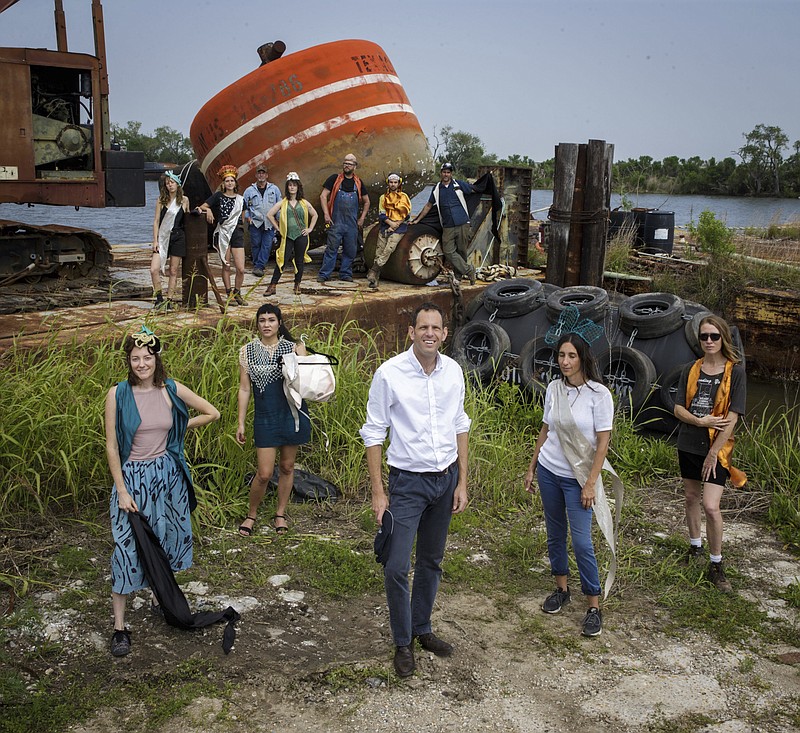NEW ORLEANS (AP) - The Louisiana Philharmonic Orchestra 's upcoming performance of "New Water Music" will literally be on the water.
Musicians will perform from the decks of a moored barge and moving shrimp boats on Lake Ponchartrain (PONCH-uh-trane) - the big tidal basin bordering New Orleans. More than a dozen additional shrimp boats will move in patterns and dip and raise their nets in a stately ballet.
This version of Yotam Haber 's (HAH-behrz) work is so complex that it required work with the Coast Guard and the Louisiana Department of Wildlife and Fisheries.
Getting it all together for Saturday's performance also required convincing musicians that the performance would work and wouldn't endanger their instruments, and getting a marine industrial supply company to lend the barge.
Haber will conduct with big flags. Coordinating all the boats also requires 50 walkie-talkies.
"It's not something that any orchestra I know of has ever done before," said Rebecca Cain, the orchestra's director of production. "So part of it has been convincing our professional orchestra musicians that we can put them on a barge and some shrimp boats and they will still be able to do their very complex job of performing."
The participating musicians have gone from dubious to excited, said Matthew Eckenhoff, a French horn player who is president of the orchestra.
"It looks like it's going to be really, really great," he said. He said a major reason for concern was all the literally moving parts, since four shrimp boats carrying musicians will be moving from place to place during parts of the nearly hour-long performance.
The strings and two accordion players will be playing on a stationary barge, and still more musicians will be on shore in groups divided to match those in the boats: woodwinds, high brass, low brass, and percussion. More than 100 amateur musicians from around south Louisiana are participating.
"There is this constant call and response back and forth between the land groups and the water groups," said Haber. "And the strings are the focal point of the axis. Everything is milling around those central strings."
Eckenhoff said the performance will be "a very interesting sonic experience for the audience. Depending on where you're taking this in, everybody's going to have a different experience."
A 20-minute concert hall version premieres Thursday, with part of the orchestra in the lobby.
Haber, an Israeli who teaches music composition at the University of New Orleans, originally thought his "New Water Music" - a play on the suites composed by George Frideric Handel for King George I's barge trip down the Thames in 1717 - as a piece for a smallish number of musicians to play on the banks of Bayou St. John , which runs next to New Orleans' City Park.
He also wanted to highlight the importance of water in New Orleans and Louisiana.
So he asked Delaney Martin, artistic director of New Orleans Airlift , a collaborative dedicated to building bridges among diverse artists and communities, to join in.
She proposed a much bigger platform for the concert. Martin even considered building boats for the occasion, but that seemed crazy, especially when south Louisiana has boats aplenty. "That led to fishermen as collaborators," she said.
That also brought in the Coast Guard. When she told the shrimpers she wanted them to raise and lower their nets - "a balletic, beautiful motion" - she learned that they'd be fined $1,000 if their nets touched the water outside of shrimping season. So she went to the Department of Wildlife and Fisheries, and got permission. The marine supply company, DCL Mooring and Rigging, is lending a barge with an 80-foot crane.
